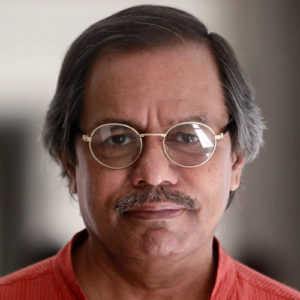
Session 6: CULTURE
Wednesday, Dec 8, 2021 | 8:00pm – 9:45pm | Bangladesh Time (GMT+6)

Professor Syed Manzoorul Islam
Professor, English and Humanities, University of Liberal Arts Bangladesh & Former Professor, Dhaka University
Paper Title – The Changing Faces of Culture: Notes from a Time of Crisis
Abstract:
If culture is understood to be a network of signification through which “a social order is communicated, reproduced, experienced and explored,” as the Marxist culture critic Raymond Williams maintained (Culture, 1981:13) then the new trends in Bangladesh’s culture, especially after it took a visual, and then a virtual turn starting in the late i980s, appear to be at odds with the assumption of both a stable social order and the predictable ways it is communicated or explored. That the idea of order came to be challenged and disjunctions in cultural production and dissemination occurred was due to a number of reasons, such as the disappointment of the youth at the failure of the state to deliver on the promises of the war of liberation, a sharp increase in youth unemployment, the rise of authoritarianism and fundamentalism, the endemic spread of corruption, the subversion of social, political and state organizations by self-serving politicians and other actors, and the emergence of new forms of domination brought on by consumer capitalism in such areas as education and the media which have traditionally been supportive of culture. With the arrival of visual culture and the wide world of web, the image became a contender of oral and written texts as meaning producer and interpreter of everyday life. The power of the visual media, its instant and unpredictable ways of communication and reproduction and its elimination of the distinction between the educated and the illiterate, the privileged and the deprived made it both a creator and disseminator of new cultural forms, habits and lifestyles. With the spread of Internet connectivity and the emergence of social media sites and different video platforms—some of which preach radicalized forms of religious ideologies– significant changes began to take place in such wide-ranging areas as personal autonomy, social relations, crime and substance abuse, sexual behavior and identity politics. The lure of virtual reality and the effects of the ‘junk-tech’ cyber subculture in our time have created a crisis by promoting alternative cultural formulations that are seen to be dismissive of values, mores and norms that one associates with traditional forms of culture. In my discussion, I expect to throw some light on the crisis, why it was inevitable, what it entails, if and how it can be resolved and what awaits us in the years to come.
 +(88 02) 55001185
+(88 02) 55001185 
